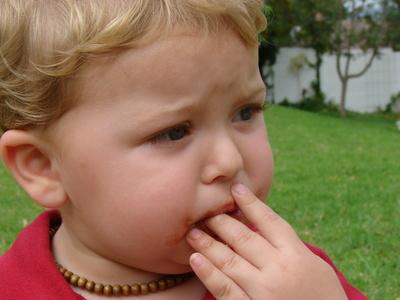Now that he has a full set of chompers, your child may be using them to assert himself, biting you, his siblings or the other kids at daycare. Naturally, you’ll want to take action to stop this as quickly as possible. Disciplining biting behavior can take time and patience, but your child will eventually learn to control his anger in other ways.
Significance
Very young babies will bite when they’re teething, but biting as an aggressive behavior typically occurs between 18 and 30 months of age. Typically, a toddler will bite when he feels frustrated or powerless. Unfortunately, biting hurts the other person. If your child is a biter, you will gradually be excluded from play dates, as other parents try to protect their own children. Using the correct discipline techniques can help to stop the behavior.
Considerations
Pay attention to when your child is biting others; your observations will help you determine the reasons why. It’s much easier to prevent biting when you can anticipate it. For example, your child may bite more when she’s playing with older children who often take her toys away, or she may bite more when she’s sleepy.
Types
One discipline technique for biting is to give your child a “time out” where he must stop playing and sit in a special area for a few minutes before resuming play. You could also take away a favorite toy or, if you are playing at a area outside of the home, take your child home. Another approach is to use “positive discipline”–praising the child for the good things that he does rather than yelling at him for bad behavior.
Prevention
Before you enter into a situation where your child may bite–such as in a play group–talk to her about your expectations and how she shouldn’t bite others. Praise her when she solves a problem without using biting. You can also carefully watch her as she’s playing. When you see a situation start to escalate, step in before she’s likely to bite.
Warning
You may worry that your child does not truly understand how much biting hurts others and may be tempted to bite him yourself so that he can “see how it feels.” This is inappropriate. After all, you should try to model good behavior at all times. If you bite him, he may start to think that it’s OK to bite others.
Photo Credit
- bite that image by Vanessa van Rensburg from Fotolia.com





